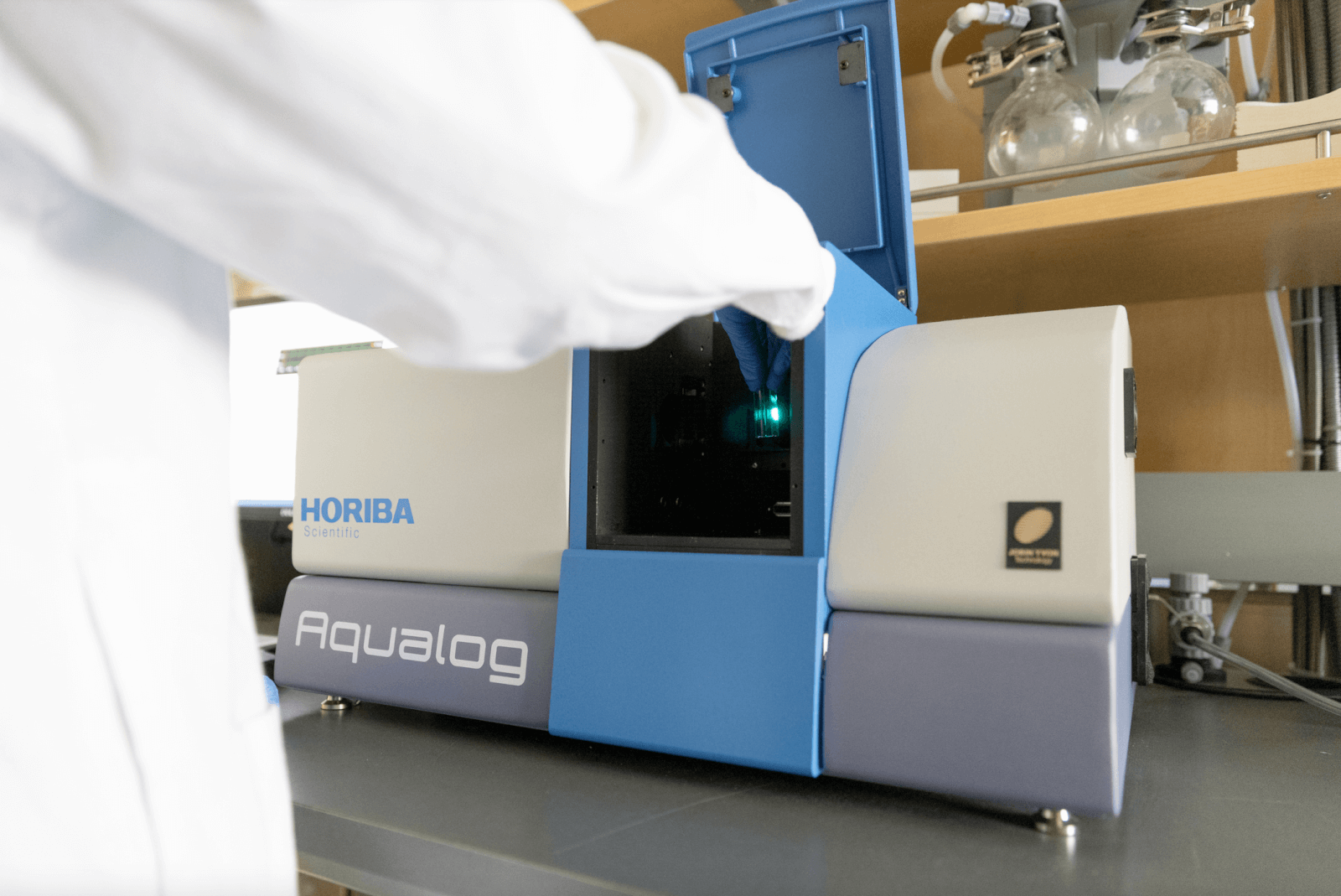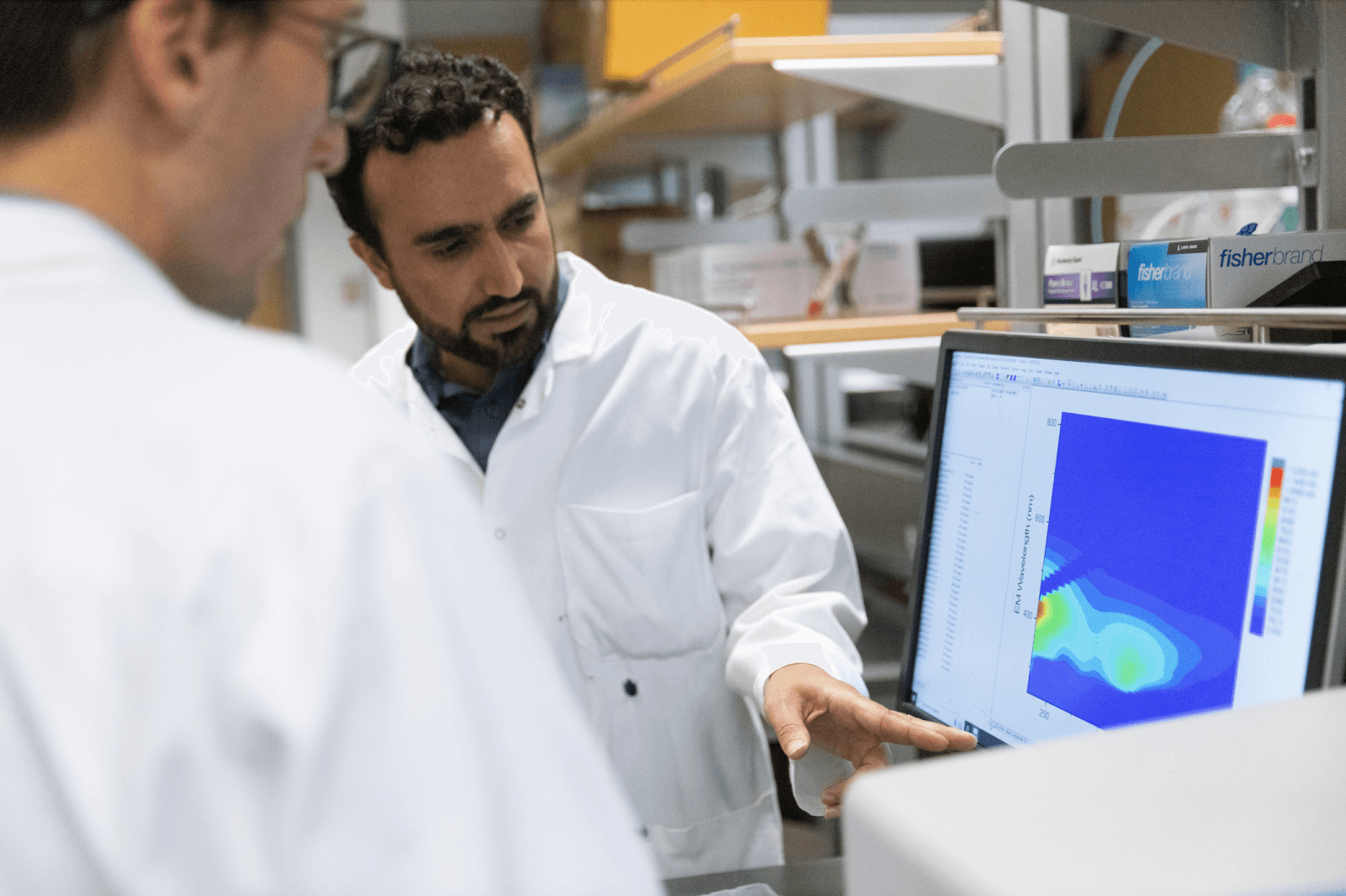
Access to safe, high-quality drinking water is a priority for everyone in Canada.
It is why experts like Nicolás Peleato, assistant professor at the University of British Columbia Okanagan, are leading the way to improve how we assess and evaluate water quality. Specifically, Peleato is examining urban water systems and how advancements in network technology–specifically 5G–may be the answer to ensuring clean and safe drinking water.
Water quality can change from the time it leaves the treatment plant to the moment it comes pouring out of a residential tap on the other side of a city. That means testing at the source isn’t enough “because we just don’t know what is happening to the water as it goes into the distribution system,” says Peleato.
With the support of a research partnership with the Natural Sciences and Engineering Research Council of Canada (NSERC), TELUS, and the Regional District of North Okanagan, Peleato and his team are exploring the potential of using Smart City solutions like 5G-enabled sensors situated at multiple points through a municipal system to measure water quality. The goal is for municipalities across the country to eventually install sensor boxes next to residential and commercial water meters to measure acidity levels (pH) and concentration of ions (conductivity). Peleato explains that although neither measurement would give details of exactly what is in the water, an abrupt change in readings could indicate a problem. Light based techniques like fluorescence spectroscopy and UV-vis spectrophotometry, which analyze how compounds in water interact with light, can also be used to identify abnormalities and send an alert through the networks whenever a problem is detected.

Consistent testing throughout the system would allow water treatment plants to be more precise with the amount of chlorination going into the water system, which could lead to more positive environmental impacts.
There is also hope that this work will help improve water quality in smaller systems, including those serving many Indigenous communities, where access to safe, clean drinking water continues to be a critical problem. Small systems generally have lower levels of treatment, operation, and monitoring capabilities making source contamination much riskier. However, the use of spectroscopic sensors is already being used and studied to reduce the gap in response time and prevent undetected contaminations, similar to the one in Iqaluit in 2021.
DIGITAL POLICY IS CLIMATE POLICY
TELUS’ partnership with UBCO is part of its ongoing commitment to mitigating and responding to environmental issues and climate change. The communications technology company aims to make the best use of digital solutions to help reach national climate change goals, and ensure that every community across the country can benefit from these solutions through access to fast and reliable networks, including the world-leading TELUS 5G network.
Canada is a country with high-quality telecommunications networks but, at the same time, relatively high greenhouse gas (GHG) emissions per capita, notes Geoff Pegg, head of sustainability and environment at TELUS. He believes there is a real opportunity to make a global impact if key decision makers get on board, starting at the government level, with clear digital policies and investments in a robust digital infrastructure that extends to underserved communities and high-emitting industries.
A recent report by Deetken Insight, a Canadian management consulting and insights company, finds that 5G can be a key factor in reducing GHG emissions. The simple evolution of next generation technology, moving from 4G to 5G, is itself expected to reduce energy use on a per bit of data consumed by 85 percent to 90 percent.
“We’d like to see some incentivization for digital adoption in GHG-intensive industries like transport and manufacturing,” says Pegg. “Let’s get environmental commitments built into our contracts, particularly public procurement contracts, and build climate and digital criteria into our engagements with corporate Canada, whether they be net zero targets, promoting Internet of Things (IoT) solutions or investments in green research and development.”
FINDING EFFICIENCY EVERYWHERE
Smart City solutions help cities operate more efficiently by capturing data from various city operations and providing real-time analytics to help make better decisions. While researchers at UCBO are using digital technology to track and improve the supply of safe drinking water, the team at Superfy, an IoT hardware and software provider focused on bringing sustainable solutions to the waste industry, has joined forces with TELUS to implement a Smart Bin Waste Management software platform, which uses bin sensors to better manage waste,recycling operations and reporting, while providing real-time analytics on resource management, workflows, and sustainability metrics. The goal is to reduce the number of vehicles and waste bins needed in Canadian communities as well as reducing service and fuel costs, thus cutting down on CO2 emissions and creating cleaner, more efficient cities.
“Knowing what’s happening on the ground in real-time will support faster, better coordinated action across our cities,” says Neil Van Seters, vice president of industry applications and data solutions, TELUS Business Solutions. “TELUS’ integrated ecosystem of Smart City solutions leverages the power of data and smart technologies like sensors to make a lasting positive impact on the environment, and we’re grateful to work together with leading industry and academic partners to help us achieve that.”

Pegg notes that whether it’s ensuring drinking water remains safe and making waste management more efficient, or encouraging partners to utilize these solutions to do their part in becoming more sustainable, TELUS is poised to continue to be a social purpose leader by both promoting and using digital technology to help get Canada closer to net zero carbon emissions.
Peleato says there needs to be a focus on this work regardless of the company’s involvement. But TELUS’ investment is making it happen more quickly in an era when time is of the essence.
What TELUS is doing for this kind of work is boosting and speeding up that process by giving us an opportunity to really see if there is potential here,” Peleato notes. “I’m really happy that the company has decided they can get behind this and wants to see where it goes.”
CLICK HERE FOR MORE INFORMATION ON SMART CITY.







